‘Circus of Books’ director reveals how running a gay porn empire changed her conservative parents
Director Rachel Mason sheds more light on her family's fascinatingly complex web of emotions as he documentary hits Netflix.
By Will Stroude
If you haven’t seen it already, Circus of Books is the fascinating slice of LGBTQ history that’s provided another feather in Netflix’s increasingly vital LGBTQ cap.
Executive produced by Ryan Murphy, the newly-released documentary sees filmmaker Rachel Mason tell the story of her conservative Jewish parents’ gay adult shop in West Hollywood.
Cashing in on the ’80s porn boom, Barry and Karen Mason initially kept their supposedly ‘shameful’ source of income a secret from friends and family, with Karen admitting: “It was like a knife over our heads all the time”.
For the LGBTQ community at the time, however, Circus of Books was a shop that formed the centre of the WeHo gay universe, and as Barry and Karen served queer customers through painful days of the Aids crisis, and came to terms with the sexualities of some of their own children, so their attitudes turned from one of pragmatic tolerance to vocal allyship.
We caught up with the film’s director – and Karen and Barry’s daughter – Rachel Mason, to get the inside track on the making of the documentary, her relationship with her parents, and the parts of the the family’s story not shown onscreen…
t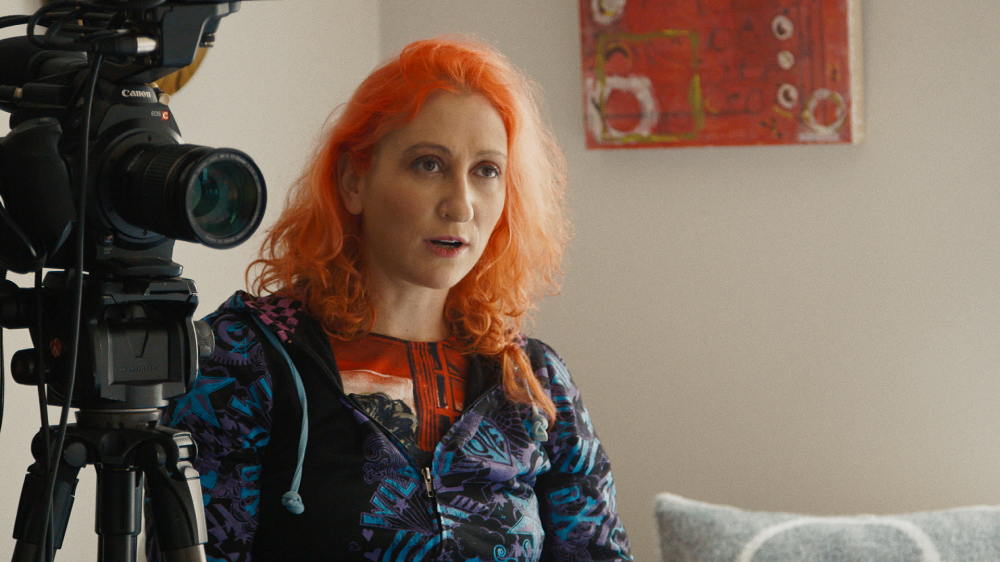
Rachel Mason
The story about Circus of Books was one of our biggest this month, our readers have gone crazy for it.
Cool. The Circus of Books stores in LA stores sold Attitude. It’s such an iconic, important magazine, and I’m glad it’s still publishing.
That’s very kind, thank you. I don’t know where to begin because for you, it’s a lifelong story that extends back to your childhood.
Pretty much. Yeah.
How old were you when you found out your parents ran a porn empire?
It was like ’95 maybe, ’94? I was in high school, and I think in the film you see that I was friends with all the queer kids, as I would be. My friends were the gays and the artists and the punks and the outcast weirdos. It just came up, “So what do your parents do?” and I said, “Well, they own this store called Circus of Books.” Fernando, who was my coolest of all the friends said, “What? That’s a porn store, Rachel.” He was like, “Can your parents give me a job there?” And you know, I remember the weird thing for me was that coming from Hollywood, I had friends who actually did have cool parents, who were artists and rock stars and musicians, and my parents were not. They were the furthest thing from that. They were totally boring, cookie-cutter, 1950s, mom and dad straight, not gay, not interesting.
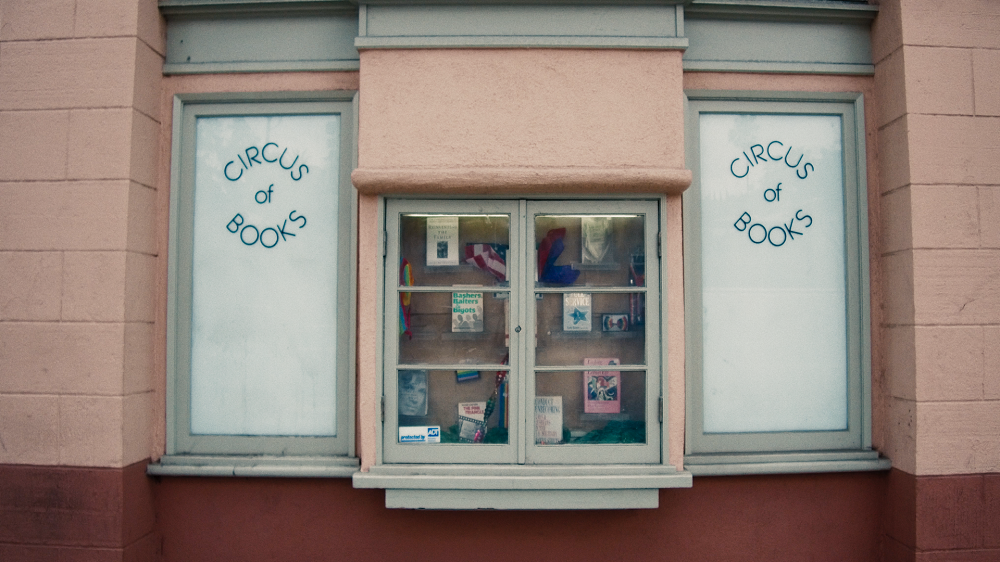
Their store was really boring to me. It was a shock to my system when I realised that they were in this world that was cool to all my friends. I had to backtrack through my childhood and recognise, different things that had happened, like during the AIDS epidemic I remember all these amazing young men who are at the store who I was totally in love with, and they were dying all around us. I had this sense of, “Oh man, that sucks. He was so cool. I liked that guy.”
I only realised later that I had this child’s perspective on the many facets of what the gay community was going through. When I got older and became a part of that community, I was going to make this film and it was just going to be a film for the gay community. It wasn’t going to be a film for the Netflixes of the world. It was going to be for us, you know? And because my family story became such a big part of the film, that is what led it to explode out of this little tiny bubble that was ultimately my scene and my world.
That time in the mid-90s was a very different place for queer people. We were still living in the dark ages, as it were, for a lot of equality laws.
Totally. I did go to school with the prototypical jocks who could say faggot and get away with it. It was, like, not cool. It was a very bad time. That was my scene because we were artists and outsiders. And my brother, who wasn’t out, had to be really closeted. Even the gays on TV were a joke back then.
What did your parents say when you told them that you knew that their business?
Oh they downplayed it. “Well,” my mom said, “actually, this over-18 section is only a part of the store. There’s all these other magazines here.” My mom’s big sort of modus operandi was just keeping a secret and maintaining that secret at all costs. I would say, “Mom, my friends know what this store is. It’s a total porn store.” And she was like, “No, it’s not. We also carry all these other things, and that’s just a part of the business.”
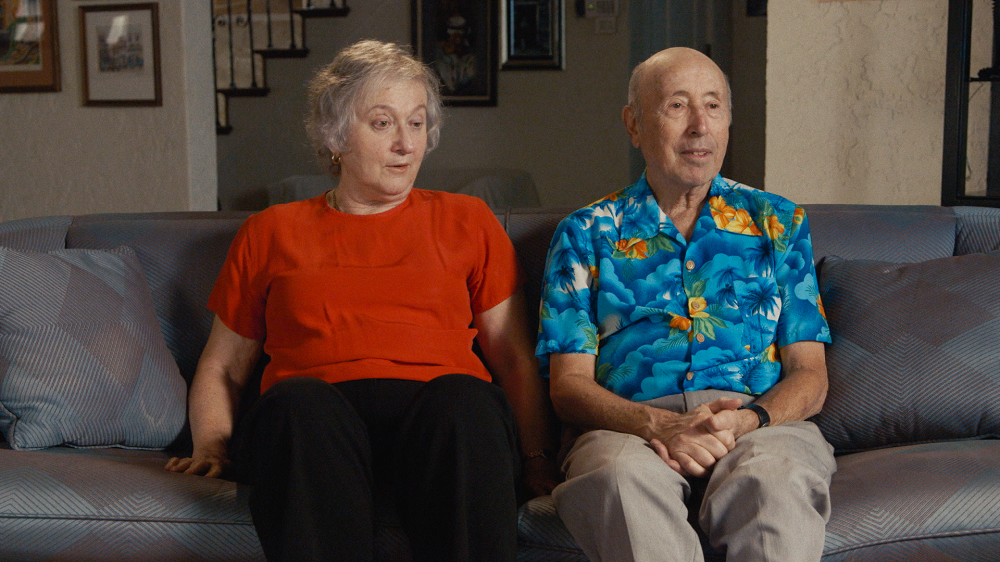
Karen and Barry Mason
Did the subject of like LGBTQ identities ever come up at home before you found out about the store?
This is something I don’t get into in the film. The irony of the film focusing on Josh’s gay identity is because I was dating a girl in high school and I kept it all secret from my parents, but my parents were so not cool. I was more like, “You know what? You guys suck. I don’t want anything to do with you. As soon as I can, I’m leaving. My friends are cool.” And I took a girl to the prom. I was just the one in the gay scene, bringing home drag queens. I didn’t have any space in my world to even bother thinking about my lame family in my teenage head. They were annoying and conservative and boring to me.
That was my life. I would leave the house and go to concerts and drag shows. I thought my parents were tedious and boring. I almost didn’t even have any desire or interest to like come out, whereas my brother had to, because he was like the golden boy.
I was just a complete outsider, weirdo, whack job that my mom’s last hope was on Josh to be the ultimate perfect child. So when Josh was gay, it was like the most devastating thing for her.
When did you first recognise that queerness in yourself?
In high school. Yeah. I just felt bisexual. I mean it was like obvious. There were times I thought I was a lesbian, and actually now my lover is a trans man, so you could say I’m pansexual, but really, I just feel like queer is the best identity for me because I feel a sense of fluidity within the terms. I’ve embraced so many aspects of queerdom over my life at this point that I feel like even within the LGBT space there’s movement of different terms. I’ve always just felt like I exist within that spectrum. And also, I am still attracted to cis-gendered men, so that’s a thing.
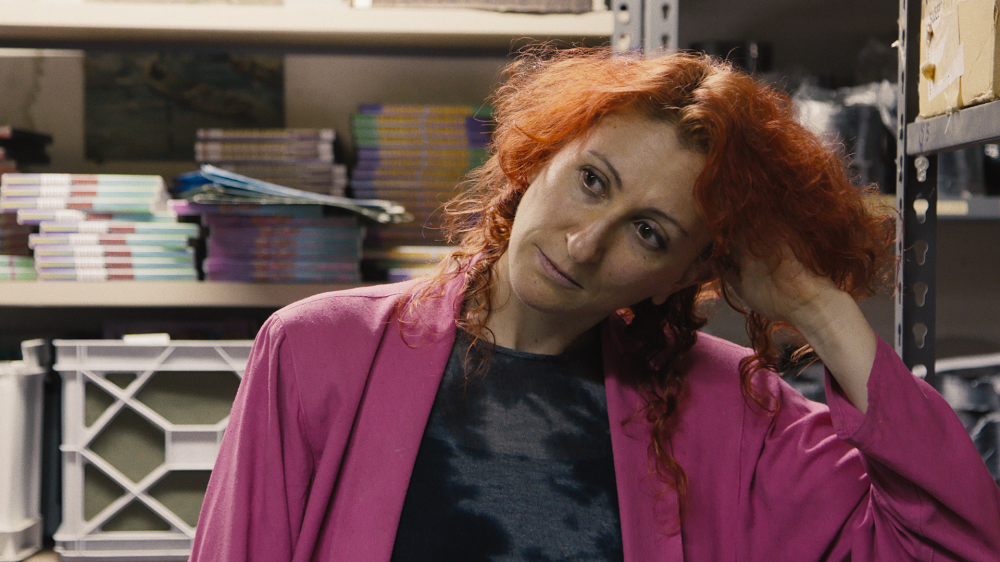
When did you tell your mother that you didn’t identify as straight?
That’s the funny thing. I’ve never come out to my parents. They’ve just always known. In fact, they were shocked when I had an actual male boyfriend that was a biological male. They were like, “Wow, okay. That’s weird.” In fact, they just assumed I was gay.
So how did religion impact your life?
In a very negative way initially, and I hated it. I really just hated the values that were really conservative and actually they did not align with what I really believe was the point of it all. If you’re supposed to have a community, why are you in a community that’s going to be so bigoted? I just also had a problem with the hypocrisy in the Bible. To me there were a lot of things that made no sense, and my mom didn’t have a good explanation. She was just, “Well, you need to be respectful.” You see that scene where my brother was up at the synagogue having his bar mitzvah and he’s really upset because his feet were hurting and she just says, ‘You need to be respectful.’”
This extreme heavy pressure of the weight of the church or the authority, my mom loves it for some reason. Some people just love it. They walk in there and they feel they’re like “in the presence of the Lord.” That is so real for my mom in a way that I don’t really identify with. For me, I do have a very strong presence of the magic and the mystery of the universe that I totally believe is a type of spiritual depth. God, to me, is the actual unknown, the mystery that we don’t know.
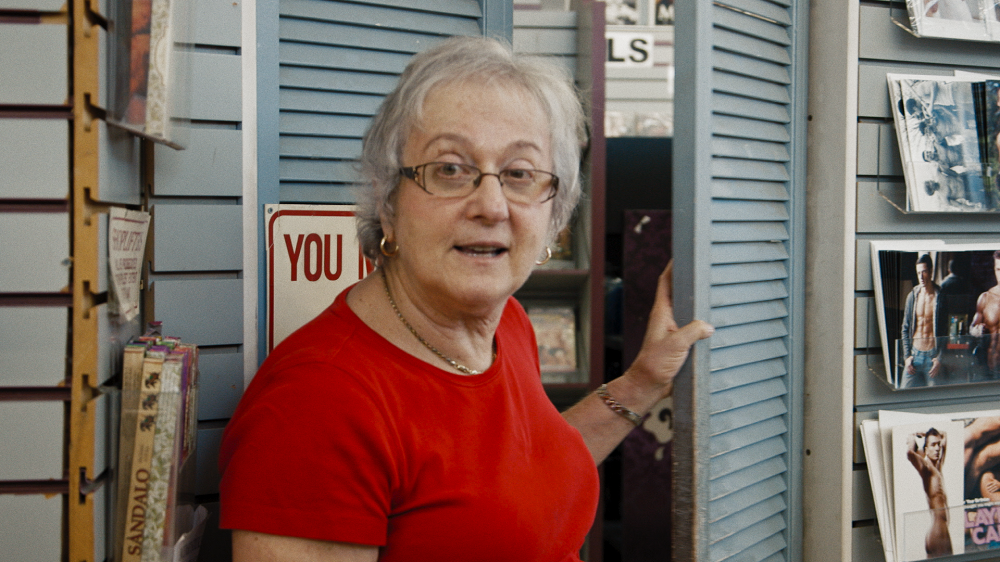
If anything, I believe the true religion is found in black holes and the most mysterious phenomena in science is really the essence of spirituality to me, and it’s beautiful. But to go to a book that’s going to condemn gays is so weird and I didn’t relate to it. I don’t like fundamentalist religions. But I think that there’s a whole new kind of church and synagogue, and there’s a movement that is becoming open to being more progressive. I love that and I think that’s great.
The film largely becomes your mother’s journey. How long did it take for your mother to come to terms with your brother being gay?
In a way, I think it was hardest that first year or so. You know, my mom had this image of what she wanted for her kids, all three of us, and I think I totally threw cold water on that, and I guess my older brother just was also sort of not the image of this perfect kid. And so Josh was like shattering this idea that she could have these perfect kids that would come out in a certain way. She had to come around to recognise that she was totally wrong, and that she was gifted the most amazing kids, and that she can only be grateful. My mom met other people in PFLAG who were very similar, and struggling.
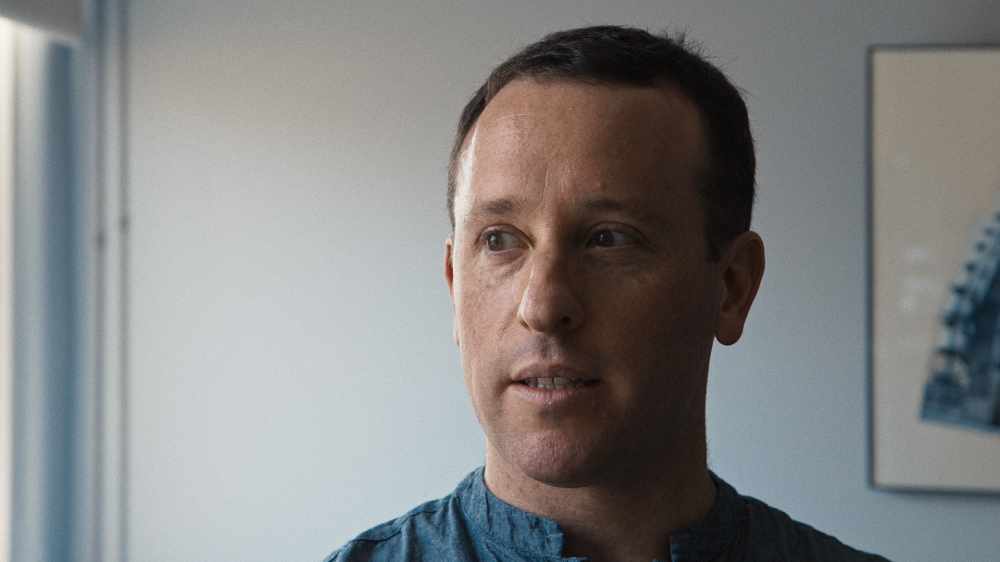
Josh Mason
And then it’s like, “Why are you struggling? Your child is a doctor, or your kid is totally fine. You’re the one with the problem.” So she would see other parents and she would recognise the kind of absurdity of the judgment that she was placing on him. In the end the shift was like, “Our kids are perfect, the problem is our culture and we need to change those laws.” My mom shifted away from her own sort of struggle and became an activist. She protested in all of the movements for marriage equality in the US and wrote letters to Congress people, and she’s actually been a real advocate for the laws that have needed to change in the US.
My mom sort of has this go-getter activism burned into her, she’s always been a fighter. I think that’s what makes her such a powerful advocate. You want someone like my mom who is a formerly very religious person, who looks like everyone else’s mom, to be out there saying, “This is a totally disgusting and wrong and bigoted law that needs to change.”
Was is hard for you to see her battle between her religious beliefs and your brother’s struggle for his identity?
I was very angry with her for a long time. I just rebelled against my mom, flat out. But it was very upsetting to me when I realised that he had this struggle. That’s what made me really cry in our interview, because I recognise in myself a kind of selfish adolescent kid who was not even giving any thought to the fact that he could possibly be having his own struggle with his sexuality, and that he could be gay and this could be hard for him. And then to see my mom’s reaction is so ridiculous and I don’t have any sympathy for it, and I had to try to get an understanding of it.
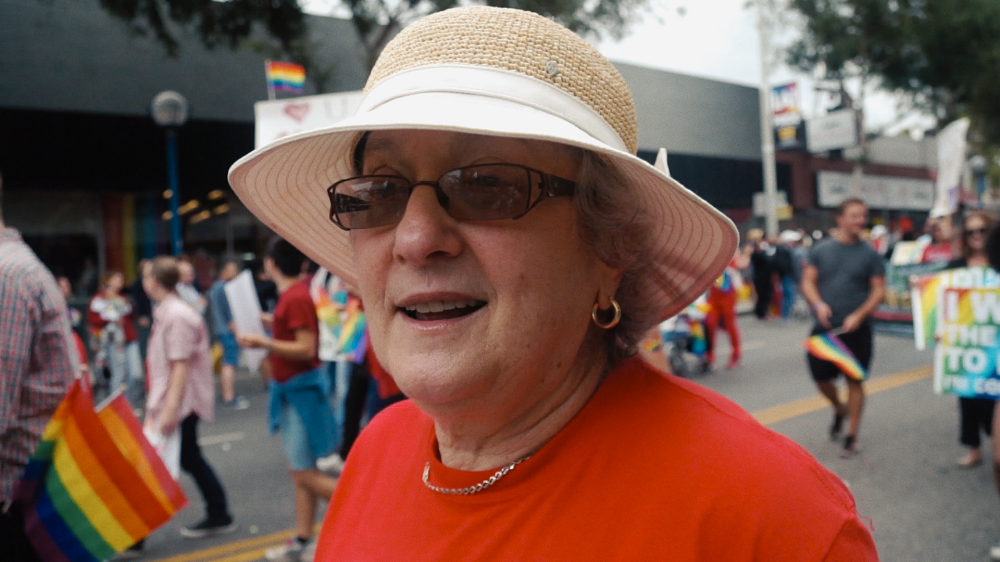
That’s what this movie helped me recognise, that when people are so governed by their religion like my mom was and still is, she has this idea of the hand of God or the judgment of God burned in her. It’s deep. And I have to recognize, “Okay, I do not relate to that, but I need to understand that 90% of our world is people that do relate to that and can relate to that.” That was this thing that I had to examine in order to understand her struggle.
Do you feel your mother ever judged gay people in any way?
You know, it’s interesting, because I think that in her mind, yeah, probably she judged it as just, “Oh God, those people. They’re so crazy.” Something like that. Like, “Well that’s such a ridiculous thing, but whatever. They’re fine. I don’t really care.” You know? I think there was some element of that, and then when Josh said he was gay, she couldn’t actually look at it in the same way, that this was some kind of anomaly. It was like, “Wow. Oh my God, this could just be real because Josh would never choose to be some flamboyant drag queen. He must actually be really gay.” I think it made her change in her vision of what that even meant.
Do you remember a moment when they realized maybe that what they were doing wasn’t just running a bookshop, it was running a safe space for a lot of people for a long time?
It only started to happen actually I think at the end when the stores were closing, because their day-to-day lives were just constant busy-ness of work. You know, someone coming in with a delivery and this person having to go out with that. Owning a small business is just this constant almost scurrying of ants, and that that was their life. It was constant humdrum activity. And then when the store was closing, people started to come out of the woodwork and say to them, “Hey are you the owner of the store? I need to tell you, this store changed my life. I didn’t know that I could ever be free with my sexuality until I saw these images.”
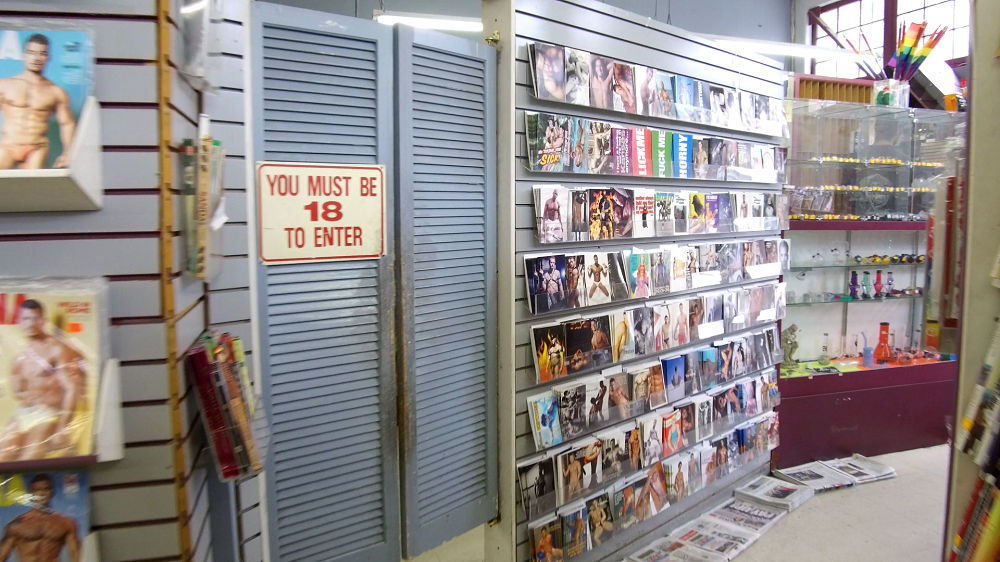
These were older gay men. There was a guy who was a Vietnam vet on the last day that the store was closing and he walked into the store and started crying. He was wearing a military hat, and it was right in front of my mother and she said, “Oh hi. We’re closing.” And he said, “I know, and I came to pay my respects. I just want to thank you for running this store. This was the one place that I knew I could come when I got out of the war.” So those were stories that my parents heard, I think for the first time, when the store was closing.
In the film your mother says:”Parents are really smart for a very short window of time.” It’s almost like the kids then educate the parents as they get older, don’t they?
Exactly. I know. It’s funny how she can be very humble at moments and recognise that she’s wrong. And then on the other hand, be the same ball-busting bad-ass that’s just going to slam through the expo with the dildos. But yeah, I think that’s her learning curve there.
‘Circus of Books’ is available to stream on Netflix now.
